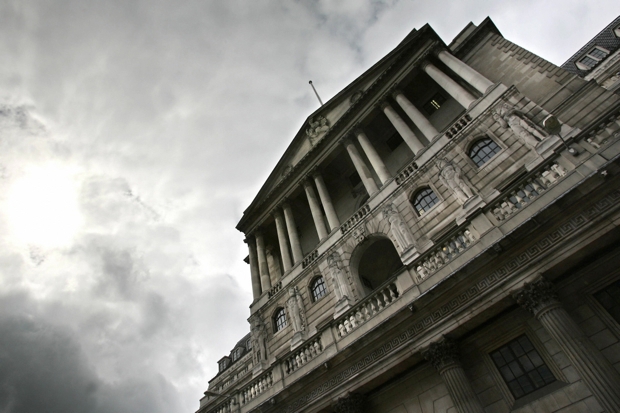Unelected. Technocratic. Exercising a great deal of power over people’s lives, without much in the way of accountability. Staffed by well-meaning, over-educated experts, big on theories and short on experience, and run by a smooth globe-trotting boss who is immaculately plugged into the Davos set. It is not hard to see why the Bank of England, especially under its Canadian Governor Mark Carney, is instinctively pro-EU. It looks across to Brussels and sees an institution very like itself.
So it is no great surprise to see the Bank making subtle, and not so subtle, warnings, about the risks of the upcoming referendum. It was at it again today. Its decision to leave interest rates on hold was no great surprise – after seven years at 0.5 per cent, no one is exactly holding their breath on that one anymore. But the minutes of the decision contained a dig at the Leave camp, arguing that ‘much of the fall in sterling recently’ was the result of the referendum, and that it ‘raised questions’ about whether the decline would persist. Worse, some investment had suffered because of the ‘uncertainty’ over the vote, it argued. Well, perhaps. But the Bank would be far better off staying out of the Brexit debate – for two important reasons.
First, it should keep well away from Project Fear. What happens if it keeps telling us that sterling will collapse and the economy will be in ruins if we leave, and then, come 24 June, that is exactly what we do? You could hardly blame global investors for the dumping the pound as fast as possible. No less an authority than the Bank of England will have told them the country is going down the tubes. In that situation, the Bank will want to be reassuring the markets that everything will be fine. But you can’t do that if you have already suggested it won’t be.
Next, the economics of Brexit are, in reality, completely unknown. No country has ever left before. We have no real idea what the impact will be, and for an institution which spends most of its time writing letters to the Chancellor explaining why it has missed its inflation target to pretend it does only makes it look ridiculous. There might be some modest impact on exports, although since our trade with the EU has declined from 55 per cent of the total to 44 per cent in a decade (a massive shift in trends that usually move about as fast as a Hilary Mantel novel), not as much as people think. Investment might fall a bit. Against that, prices might come down, and some other markets would open up as we were allowed to negotiate our own trade agreements. Net-net, it probably won’t make much difference. And if it does, no one has the foggiest what it will be or how to forecast it.
True, the Bank intervened in the Scottish referendum, to some effect. But that was very different. The SNP’s plans for its post-independence currency were chaotic beyond a joke, and it was reasonable for the Governor to point that out. The same is not true of leaving the EU. We will still have the pound. We will still be the fifth largest economy in the world. In reality, surprisingly little may change. The Bank may feel it has a duty to make warnings about Brexit – but this is a debate it would be better advised to stay out of.






Comments